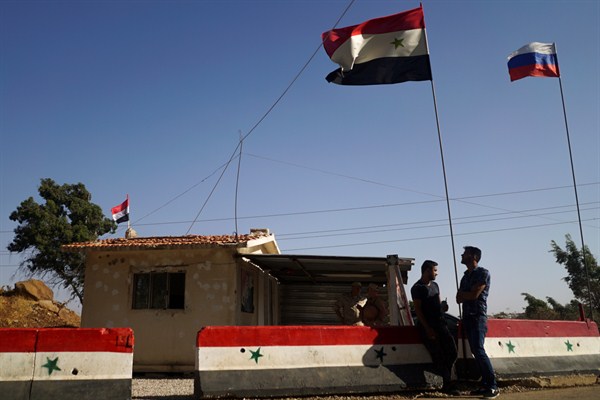The restive coastal province of Cabo Delgado in northeastern Mozambique doesn’t often make international headlines. Before the surprise discovery in 2011 of what is believed to be one of the world’s largest offshore natural gas reserves, Cabo Delgado was a sleepy little getaway mostly known for its quiet beach towns. That changed late last week when militants from a newly formed branch of the Islamic State reportedly killed seven Russian soldiers believed to be fighting on behalf of the Wagner Group, the shadowy, Kremlin-backed private military contractor.
In some ways, the fact that an energy-rich part of East Africa riven by deep social, economic and political inequalities has become fertile ground for a homegrown ISIS affiliate is not all that surprising. Nor is it surprising that only a few months after Mozambique’s president, Felipe Nyusi, inked a multimillion dollar energy and security deal with Russian President Vladimir Putin, Wagner Group contractors were apparently dispatched to Cabo Delgado to ostensibly stamp out the Islamic State and other Islamist extremists, who have been waging an increasingly virulent anti-government insurgency.
Much like in Libya, where the activities of the Wagner Group have also recently grabbed headlines, the Kremlin’s global business model as applied in Mozambique is predicated on moving fast, breaking things and capitalizing on the failure of autocratic regimes to govern and secure their own territory. In the lead-up to Mozambique’s recent elections, insurgents mounted dozens of attacks, while violence continues to roil the country despite a peace accord between Nyusi’s Frelimo party and Renamo, the former rebel group turned main opposition party. Nyusi, who was reelected apparently with a little help from the Wagner Group’s cyber counterpart, the Internet Research Agency, is only one of the growing list of Kremlin clients in Africa with leader-for-life ambitions, according to a report released last week by the Stanford Internet Observatory.

